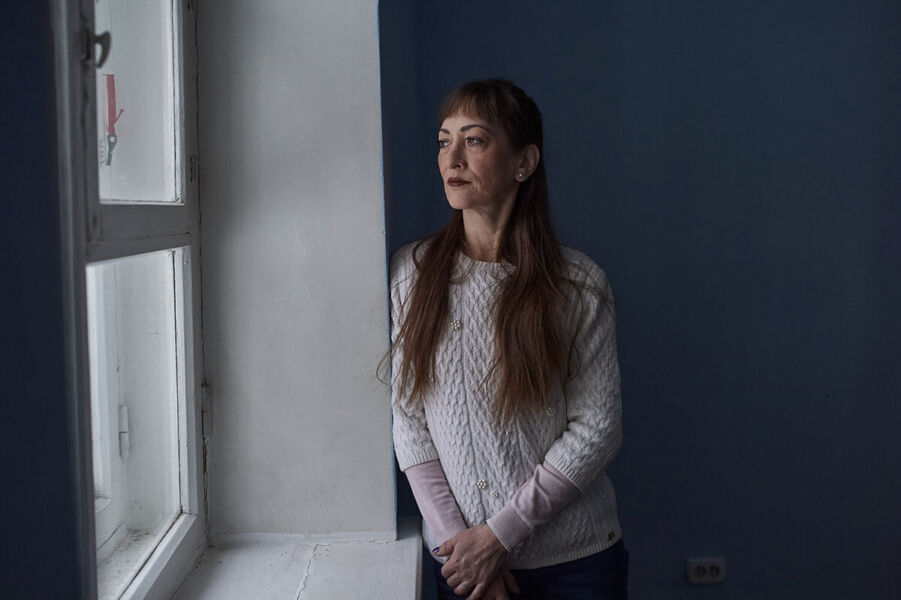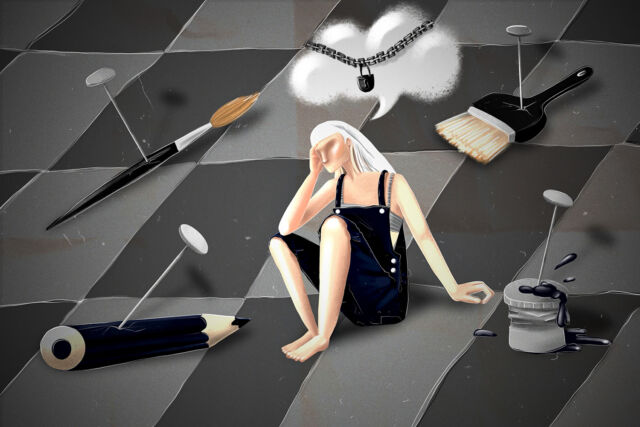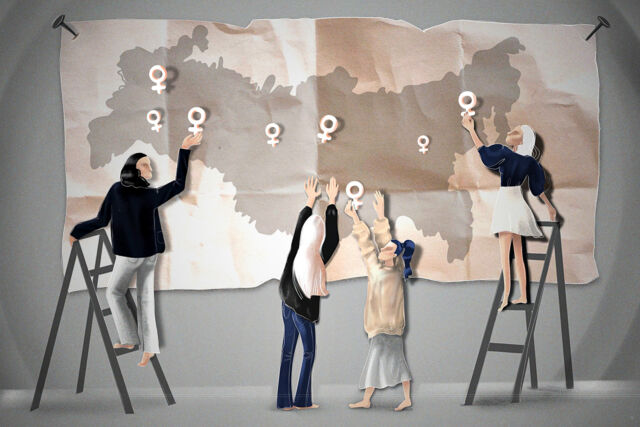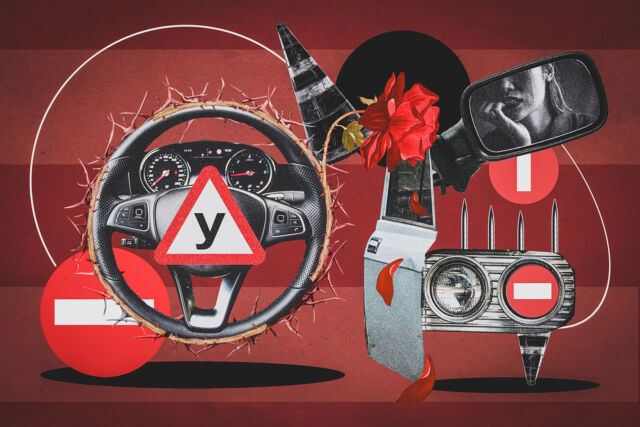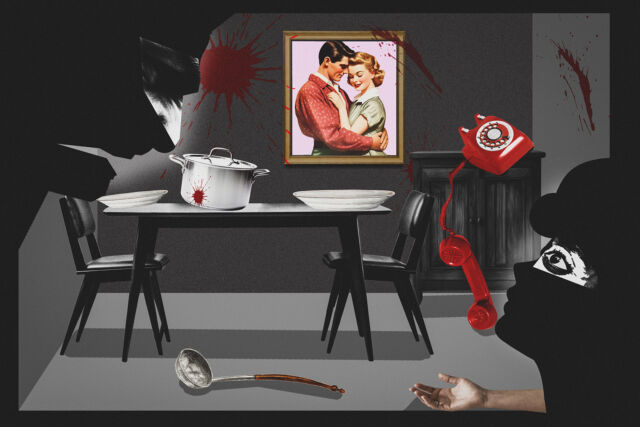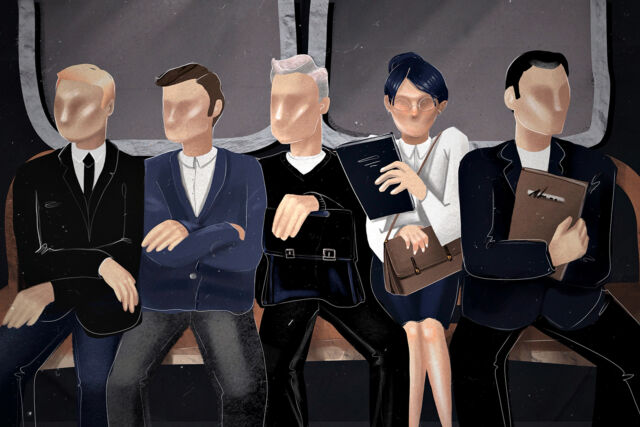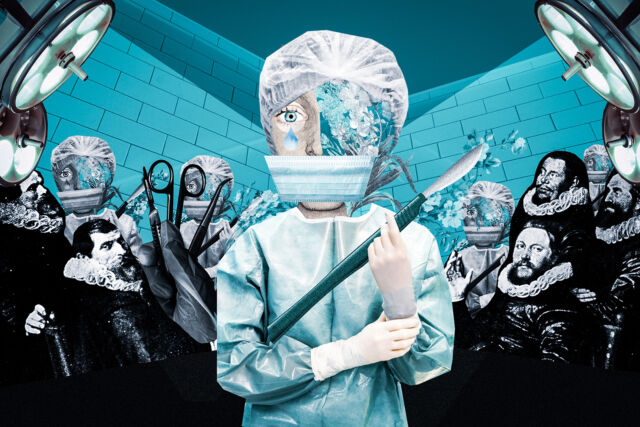Discussions the bill draft preventing domestic violence up sporadically in Russian society: some see the proposed measures as too lenient, others see these as “interference in family life.” Once again, the bill draft has been promised to be submitted for consideration by the State Duma in the autumn of 2021. But it hasn’t been submitted yet. Meanwhile, the lack of measures to prevent domestic violence annually takes the lives of some women and cripples the fate of others. According to an investigation by Novaya Gazeta and Mediazona (the media outlet is included in the register of foreign agents by the Ministry of Justice), 79% of women accused of murder suffered from domestic violence themselves.
Glasnaya tells the story of Elena D., 46, from Perm. The court sentenced her to nine years and nine months in prison for the murder of an unfamiliar man who beat his partner in front of her. Today, now free, Lena realises that it is unlikely this tragedy would have happened in her life if she hadn’t gone through the hell of domestic violence herself.
***
On February 8, 2015, Lena D., 40, came to visit a friend in the communal flat where her friend and her boyfriend lived. At that time, Lena worked at the factory as a packer, was divorced from her second husband and lived with her new boyfriend in the city of Lysva, Perm Krai.
Her friend was not at home, and Lena stayed to wait for her and suddenly heard screams in the next room. Having opened the door, she saw a man hitting a woman in the face, while the latter was crying and covering herself with her hands. When Lena interceded — “Why are you hitting a woman?” — the man turned on her and punched her several times in the head. Trying to avoid a fight, Lena returned to her friend’s room, but the man followed her, continuing to throw punches.
— The first punch, the second, and then the third… I felt prostration — as if I had been robbed of my soul. I’m sitting in a chair with a knife in my hands, like a zombie, staring at one point. I don’t remember taking this knife — it was already on the table; they were cooking fish there. Then I saw the blood, he shouted obscenely, went into the hallway and fell there. I’m thinking, “People don’t just fall down… If I stabbed his leg, maybe…”
The next thing Lena remembers is a ‘grey-green’ man lying in the hallway. The roommate kicks him and shouts, “Die, you beast!” Lena feels his pulse — it is there but weak — and runs to the neighbours to call an ambulance. Five minutes later, the paramedics arrived, followed by the police.
— But I couldn’t care less about the people around me: I realised what I had done. In my head, I had already prepared myself both for sentence, and I was mentally going to the colony.
At two o’clock in the morning, the police told Lena that the man had died of a stab wound to the heart.
“Fed and shot”
— There are times when I can’t talk about the past at all. I don’t even want to remember.
In the morning of December twilight Lena meets me on the threshold of the Perm Nechuzhie centre (English: Non-strangers centre) — with her make-up on and hair pinned up, wearing jeans and a milky coloured coarse-knit jumper. She deliberately asks to speak in whispers: the other household members are still asleep. Then she gives me slippers and leads me to the kitchen along an endlessly long corridor. Just like the conversation we are about to have.
Lena brews tea from tea bags in mugs with colourful cats on them. Then she asks to turn off the recorder. We talk off-record for the first half hour, then Lena pulls herself together and lets me use the recorder again.
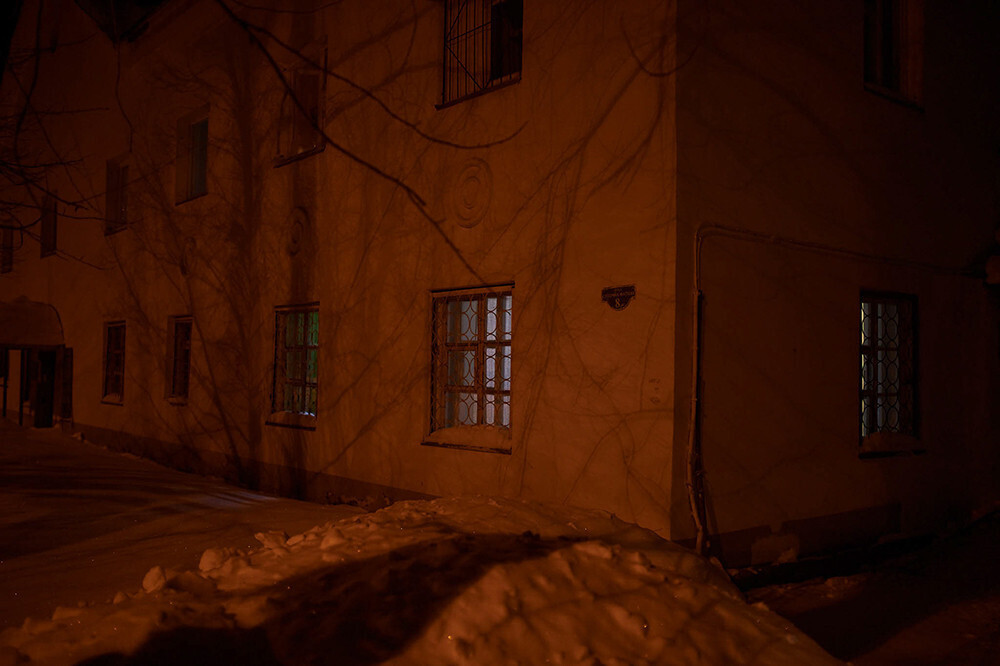
The Nechuzhie centre (English: Non-strangers centre) opened in Perm in the spring of 2021. The centre was founded by Anna Kargapoltseva, founder of Vybor (English: Choice), an inter-regional NGO for the social prevention of delinquency. It is Russia’s first centre for women convicted of murdering their partner or relative’s abuser. Up to eight women can live in it at the same time. So far, three women are living there. Psychologists and human rights activists help them collect documents to restore their housing or parental rights. The residents work for a private sewing factory with which the centre has an agreement.
Lena has been living here for the fourth month since she was released from the colony. She served almost seven years for that murder of a complete stranger — and came out with an ankle bracelet on her leg, her sentence still pending. Her fate is no worse than that of the other women passing through the centre — but that is the worst part.
Lena was born in Nevelsk, Sakhalin: her father served in the maritime school and met her mother there. Lena’s mother was from Sakhalin, and her father and his relatives had lived in Lysva all their lives. Her grandmother raised her after: her mother brought her to Lysva when she was five months old and then simply disappeared. When Lena and her father tried to track her down through the nationwide search, the answer came back: “Missing.”
— “My dad remarried when I was two years old, she recalls. He was a fifth-class carousel turner working on computer-controlled machines in those days, he earned 500 roubles. But her stepmother always managed the money. He loved, of course, to “be on the booze,” and she loved, too. I remember them in a drunken haze when they were coming to my grandmother on the weekend. That was the first time my stepmother gave me homebrew. I was thirteen then. She said it was “kvass” [a drink made from fermented rye bread]”
“The closest person I had was my grandmother and two of my uncles who lived with us. Uncle Gena loved me more than my own dad. My first vivid childhood memory is of my grandmother baking shangi and me playing with toy cars. I grew up among boys. I had no girlfriends — I was the only girl on the street. My grandmother used to say: “You should have been born a boy.” Even though I can still knit, sew, I feel she was partly right”.
After school, Lena spent a year in a plastering and painting college but did not get her diploma, so she went to work at the Lysva Turbogenerator Factory as an electrician to assemble irons. There was a small workshop at the factory where schoolchildren, people with disabilities, low-income people and pensioners assembled pens and cords for irons. Then she laughs:
— “I worked there for three years, soldering light bulbs for irons. Since then, I am not afraid of any work.”
When Lena turned seventeen, she met her first husband in Lysva: their families lived next door. I pregnant. My daughter was born soon:
— “It was the beginning of 1993. I worked at the factory and rented a dorm room, and my husband studied at college. He put his scholarship in his account, and I provided for the family. When the child turned six months old, he started to cheat on me in front of my eyes. He and my mother-in-law later accused me of having affairs. Of course, I foolishly made some mistakes, too. I flirted with guys in revenge, but no, I didn’t cheat on him”.
He once broke my nose, and for that I will never forgive him. He was out late somewhere, on his way home from work, and I said something to him once. I was walking toward him with the pushchairand he hit me.
I turned around and left. And he took our daughter and went to his mother’s house. My legs went numb in those days”.
“My mother-in-law actually filed papers for divorce. She told me: “Your guests cried tears of joy at the wedding, but I cried tears of grief for marrying my son off to a … [obscene] whore.” Everyone thought: because I’ve been friends with guys all my life since I was a kid, that’s who I am… Even though I had nothing with anyone before him, I was a virgin, and my husband knew it. But he even came to court with his parents. That’s all. Katya, my daughter, grew up with him: my mother-in-law and her husband forced me to sign a waiver of parental rights. I signed it — I knew I wouldn’t be able to feed the baby. I was out of work and starving: while I was on maternity leave, my company went into liquidation. You can’t get a job without an education, and how could you work if you have no one to leave your daughter with? My grandmother had died by then, and they wouldn’t let me into daycare”.
Lena gulps down the end of the sentence, stopping my questions. She says she doesn’t want to talk about it anymore. She has not seen her child since the daughter “doesn’t want to communicate.” Lena’s daughter is now in her thirties, much, much older than Lena herself was at the time when she was left alone in her grandmother’s house after the divorce and the loss of her child.
— “I was nineteen years old. I remember there was dried fruit, leftover from. And so the stepmother, taking them away to the neighbours, said: “You might as well starve to death, ****.” I still remember dreaming about food. How I used to collect the groats in the drawers, which were scattered there.
After a week of starvation, Lena went looking for help. In the 90s, drug addicts willingly agreed to provide free food in Lysva: since then, grown-up men regularly came and made drugs at Lena’s home. They never molested her, just fed and shot. Lysva was then officially ranked number one for drug addiction in the Perm Krai.
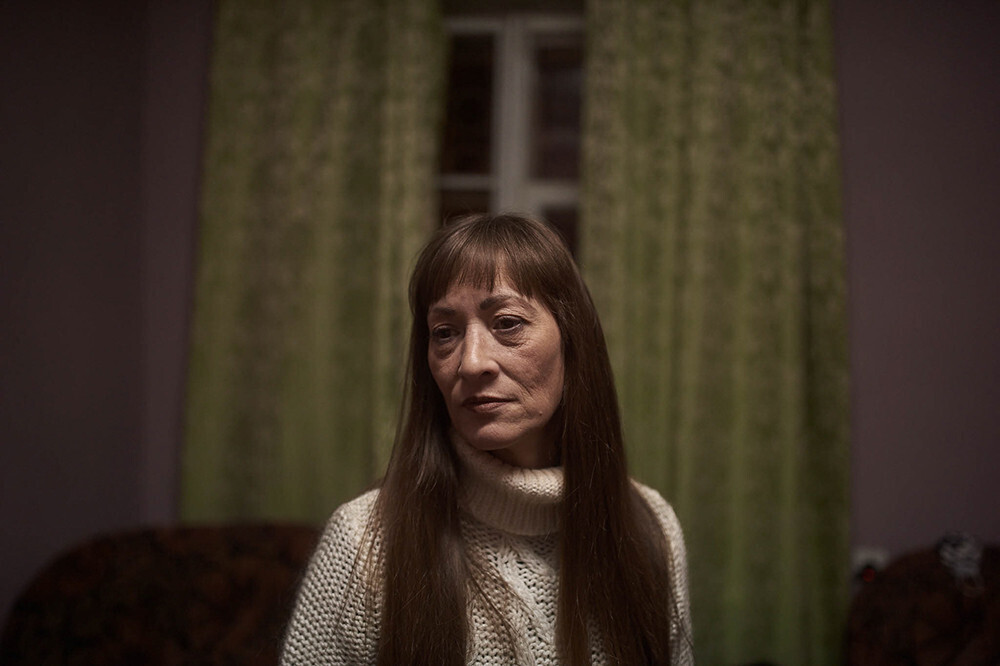
Shortly after meeting the “feeders,” Lena was sentenced to three years for possession of drugs a especially large . Shortly before this, Lena, her father and her stepmother had sold grandmother’s house, where the electricity and gas had been cut off due to debts.
— “My stepmother and father gave me only half of my money. And that’ s when I was sent to prison. And all the money, all my belongings were left with the drugs addicts in the flat we had moved to after selling the house. Under convoy, I went with nothing”.
“If you don’t drop the case, leave with the child”
Lena was serving her sentence in women’s correctional colony no 32 in Perm. She came out in 2000 and set herself a goal: to have a son. I didn’t want to get married.
Six months after her release, Lena met her future second husband.
— “I woke up in the morning and saw that the house was well-kept and the man was so nice. The doorbell rang: the mother-in-law arrived with her grandchildren — the youngest is three, and the eldest is six. “These are my sons, my wife and I are divorced: she is a floozie.” So he said and went to work. And he hid my clothes. So I sat on the sofa all day. Young, stupid, just got out of the colony, and also shy by my nature. I was afraid to even go to the toilet — I was ashamed. His eldest son brought food to my room. In the evening, my man arrived, and we didn’t even have to talk about it, it just happened — we started living together. Two months later, his wife came in, drunk. Together with a friend. The eldest son even defended me from her then, saying: “Stay away from her.” The children have already started calling me mum. Although she also came to see the children occasionally. A year later, we found out that she had died.
My man almost always drank. I got tired of it and left at one point, but he found me and brought me back. On Easter, April 14, 2001, I remember that I said: “You either quit, or I’m leaving.” My aversion to alcohol started — then it turned out I was already pregnant. He stopped drinking for a while. I thought things were getting better.
He was somehow indifferent to the birth of his son. He was not happy about anything at all. He was a thief, really: he didn’t work a single day, yet he had a lot of money, but God forbid to get in there: he and I had different cash registers. When my son turned one year old, I got a job — I was tired of borrowing to make sure the baby had a milk carton.
At this point in her story, Lena goes hog-wild. She resents going back to those events. Indignation, resentment, anger! And she constantly laughs — in a low voice, loudly, feverishly. I understand that she is still living it.
— …We had a fight then. He followed me and fell into a ditch. When I called for a taxi and tried to get money out of his pocket, he jumped like a bat out of hell, sat on my chest, broke my right arm in three places, ripped off my gold and ran away. The taxi driver saw my arm arch in three places and took me to the hospital for free.
Lena was in the hospital for only five days: the children were waiting at home.
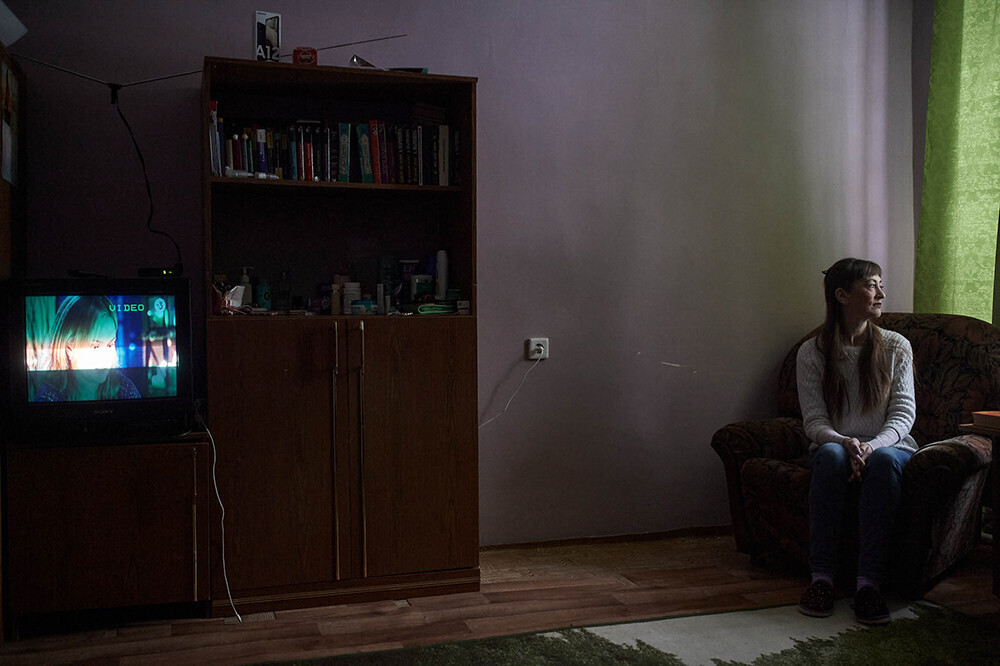
— I got my arm casted. I chopped firewood, fed the children — did everything with one hand, she recalls. — The husband was automatically prosecuted — the hospital staff reported him to the police. I said I had fallen, but they didn’t believe me: “You had to fly from the fifth floor to get a fracture like that.” The husband said: “If you don’t drop the case, leave with the child.”
I only had a fictitious dormitory registration at the time, with half the city registered in one room, all released from prison. I would have left then, but where would I have gone with a one-and-a-half-year-old child and a broken arm? There nothing to live on, nothing to rent. And I asked the militsiya to close the case I told them everything, that I had nowhere to go.
I was running around the officials’ offices. Once I went to the social welfare office, my child benefit had not been paid for nine months because my dormitory registration had expired. I explained that there was a waiting list for kindergarten, I had nothing to feed my child, and I couldn’t go to work as I had no one to leave him with. “Get a nanny,” they said. For what money if I don’t work? A vicious circle. “Then, put a sign around your neck and go to the square: ‘Looking for a free nanny,’” they said. I complained to her supervisor about the employee, and she was shouted at me very loudly and in all sorts of ugly ways.
And I sought an extension of the registration through the town hall. I opened the door to the mayor’s office with my foot or rather, I first tried to make an appointment; I came in at four in the morning and was told there were no more appointments left. I freaked out and went directly to the mayor. I opened the door with a bang and said: “I will move in with you now, and you will provide for me.” He picked up the phone, called and solved the issue in two minutes — my registration was renewed. And the social security allowance was returned.
I once went to my stepmother and father’s house with the child, beaten: they let me stay overnight, but they threw me out in the morning. I had to go back to my husband — I would come and be afraid. I was most afraid for the baby: once he threw him the floor, hopefully, the blanket was thick enough. I fell on top of my son and covered him with myself, and he was kicking me. Whatever, let him kick me, as long as he doesn’t kick the child. So I lived in fear for seven years. I filed charges against him, but it never went to court. Then I started to realise that if I didn’t leave, he would kill me.
When I, beaten up, went to the Department of Internal Affairs, they said: “But [he] didn’t kill [you]!” The cases were never opened: I would stand there, bat my eyes, turn around and walk away.
At that time, I already had my own market stall. I sold consumer goods that were in demand: purses, umbrellas, shavers, batteries, gardening gloves, postcards. Once I went to buy goods in Yekaterinburg. I come back, my four-year-old son runs out and says: “Mum, dad was sleeping with this woman, and she threw me off the sofa in the night.” I lost my senses, and I dragged her out of the house by her hair. I must have let all the steam out on her…
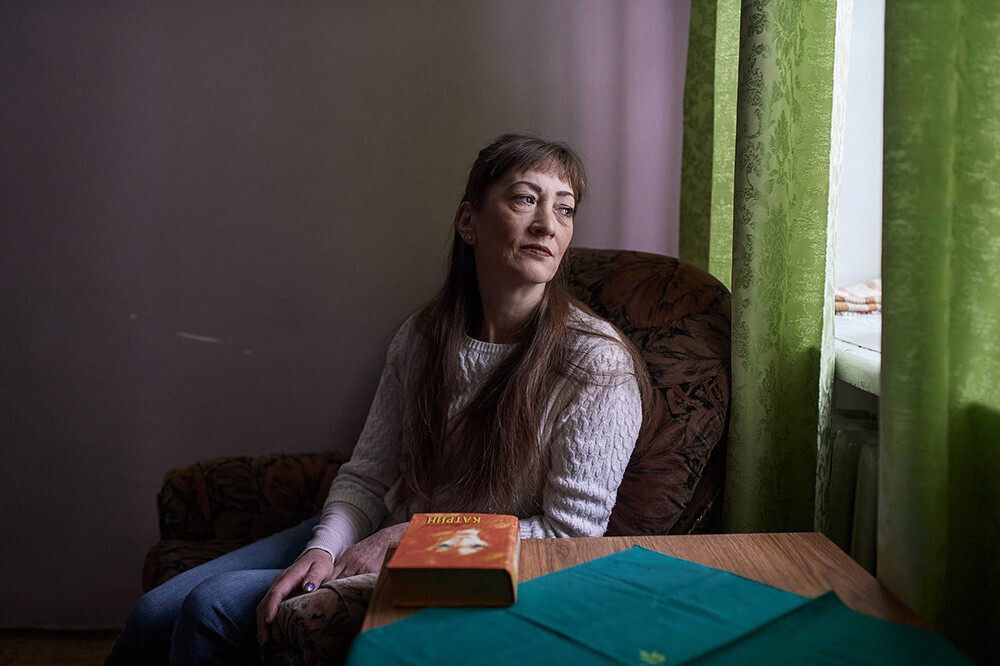
Blushing and getting more and more heated, Lena tells such details of her life with her husband that it gets terrifying. At one point, her husband decided to place his youngest son in an orphanage because he had mental health issues. But Lena insisted that his father take the boy back. This event further inflamed their relationship, which flew like a swing from love to hate.
In between beatings and passionate reconciliations, Lena herself had fallen into this quagmire before she knew it. Reporting to the police her husband´s threats, beatings, detentions all became the norm. “She chose this life for herself,” someone would say. But if you look back over Lena’s lifetime, how many other lives did she have to choose from?
One day Lena’s husband asked her to go to the militsiya to give some statements: their car was suspected of having been involved in an accident, while the car, in fact, was at the car service at the time. And Lena needed to confirm that.
“So I arrive, and they immediately shove me into the prison cell. I’m freaking out. And I say to a senior officer whom I know: “San Sanych, what are you doing, redhead? Are you nuts? Where are you shoving me?” And he shows me the court order, and then I recall that I really didn’t go to some trial because I had a massive bruise after another beating: I was lying down for three days and couldn’t get up. Later, I found out that the trial was on my husband’s complaint: I had allegedly tortured his youngest child. Apparently, this was his way of getting rid of me because I insisted that the child be taken back from the orphanage.
So I was locked up for eight months, laughs Lena. At the tuberculosis dispensary, a physical examination showed a darkening due to another bruise — it took four months to heal, my eye was still closed — so they kept me under quarantine. I was supposed to have an extension trial every two months, and I wasn’t there — I was in a tuberculosis dispensary in colony no 28 in Berezniki. That’s where I was.
When they asked, “Where did you get the bruise?” I answered: “On the outside.” When the doctor asked after the X-ray, “Did you break your ribs?” I replied: “Did this every month.” Also, I kept “accidentally falling down.” I still have a rib fragment floating in my lung.
The X-ray periodically shows bony darkening. In the tuberculosis dispensary, I’ve contacted people who had open tuberculosis. But God protects me — I don’t have HIV even though I used to inject drugs. Everyone is surprised.”
Even though Lena’s husband beat her and put her on trial, she continued to communicate with him, even from pre-trial detention. Why, she didn’t even seem to ask herself that question. “I mean, what was there to do in prison? The children were with him, so I asked about them.”
One day Lena asked her husband to send her a parcel.
— I wrote a shortlist: “I’m owed four thousand roubles at the market; go there, collect the money, and buy some stuff for me. I’ve run out of soap, shampoo — everything.” I’ll never forget that parcel for my four grand: 15 packs of Prima [cigarettes] (I hope he sticks it up somewhere!), 200 grams of Limonchik candy that no one can chew, a box of tea, five instant noodle soups. No soap, no shampoo.
When Lena was finally taken out after eight months for the prolongation of the preventive measure, the prosecutor offered a guilty plea and a special order in exchange for a suspended sentence. Lena has no recollection or knowledge of these cases, “I just signed everything in court without reading it, just to get a suspended sentence.” And she was given a suspended sentence.
— While I was behind bars, my husband was writing me love letters. But as soon as I came out, I understood we were total strangers, and I felt disgust towards him. My mother-in-law opened the door when I came home: “He said not to let you in.” I went in anyway, and there was neither my fur coat nor my gold. He took all the goods, too: before the arrest, I had bought goods worth 25,000 roubles in Yekaterinburg. I was told later how he was selling umbrellas for ten roubles.
“Grab the baby and run — he hasn’t been sober a day,” advised a mutual acquaintance. Lena was in a tizzy: first, she took her son and went to Perm to earn money, then she suddenly returned to Lysva to her husband: there was no one to leave the child with so she could work. And if you don’t work, how do you feed him?
— “My husband didn’t seem to drink. I left my son to him. And then I found out that the child was in an orphanage. My husband then filed a complaint against me that I had allegedly stolen from him. He had been drinking himself and was on the guardianship register — so I guess that’s why they came for the child. I was a single mother, and I had no registration, no housing — no guardianship would give him to me. Then I came to Lysva a month later to check in; I was on probation after all. And I came to visit my son. But he was no longer there. They did not say where. That was a great mystery. Adopted. And that was it; I was going down the Peterskaya Road [in plain sight, recklessly]: I was emotionally broken; I couldn’t find my way out. Now I look back and think that things could have been done differently.
Life became hectic again: back in Lysva, drugs. I met a lovely man, twenty years older, but I couldn’t be with him for more than two weeks, he was tedious. I left Lysva for Krasnodar, worked at the post office and gave up drugs for good. The task was simply to survive. Lysva was my nightmare. But then I came back: my new man persuaded me to stay with him, he registered me at his place. I got a job as a packer at a local company. And so it started again: “Why don’t you give me all the money? Why are you living and eating at my expense?” I gave half of my salary, but I also wanted to buy something for myself — I hadn’t bought a single thing in my whole life.
One day we had a fight like this, and I went to a friend’s house for a visit.”
“The justifiable defence is not established”
Lena pours me some tea. Then she exhales and remembers the night she committed the murder. The deceased man, 38, was two years younger than Lena herself. She only found out his name during the investigation and that he had been released from the Berezniki colony six months earlier. At the police department, she signed all the papers without looking — what kind of lawyer is out there, eh? — and two hours later, she was in a cell behind bars. I saw the indictment in the pre-trial detention centre. On May 15, 2015, three months later, the Lysva City Court sentenced her to nine years and nine months in prison for murder. The prosecutor asked for a 10-year sentence, but the judge commuted the sentence for three months — for the fact that Lena had called the ambulance herself.
Lena does not remember the moment of the murder very well. Nor does she understand how the kitchen knife ended up on the window sill behind the curtain, where the police found it. The fingerprints of the room owner where Lena came to visit were found on top of her fingerprints on the knife. He disappeared and couldn’t be found for a long time. When the investigators asked several times, “Could he have stabbed him after all?” Lena shook her head in disbelief, “It was me. I think he just grabbed the knife from me.”
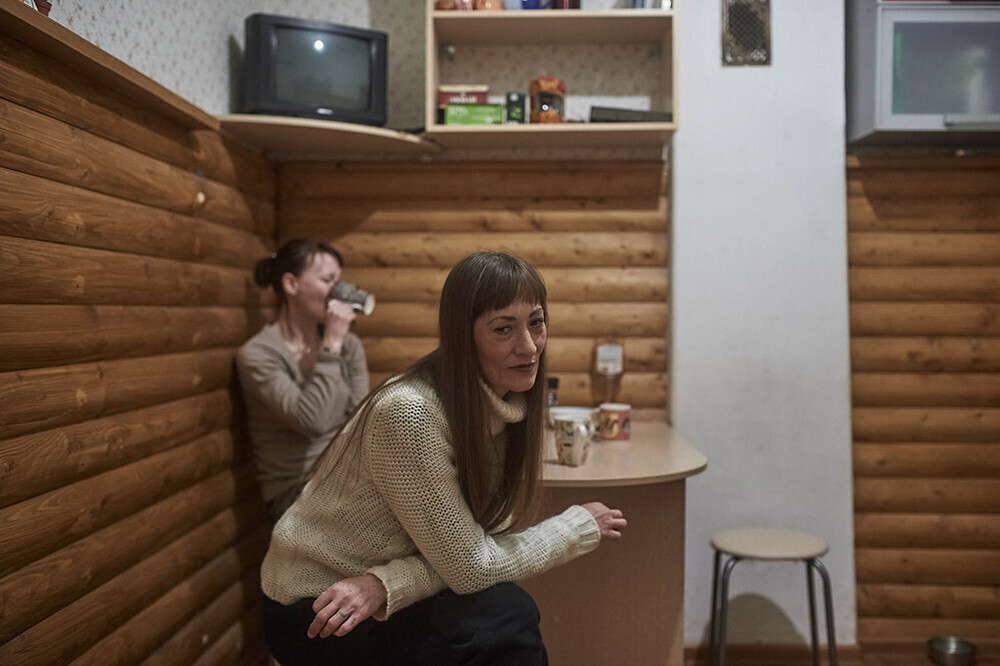
Lena’s confession and the testimony of two witnesses, the room owner and the murdered man’s roommate, were enough for the court to reach a verdict.
“Both gave accusatory statements: they said that the murdered man didn’t beat me, he beat everyone else, but he didn’t beat me. For some reason, the court gave more credence to the witnesses’ testimony than to mine. But at least his roommate confirmed that I stood up for her. At the trials, I said I was defending myself: if I hadn’t [stabbed] him, maybe he would have done this to me, and who knows how it would have ended. I’m not sure anyone would have stood up for me. The room owner himself was beaten, and then he sat on the sofa and watched as I was beaten on the head. I never thought of changing my plea. I’m guilty,” Lena mouthed. “I have redeemed my sin, but not to the end: I will never redeem myself before God”.
On the appeal, Lena and her appointed lawyer tried to reclassify the charge to Article 109 of the Russian Criminal Code — “Causing death by negligence” or Part 4, Article 111 of the Russian Criminal Code — “Intentional infliction of grievous harm to health, resulting in death by negligence.” They argued that the police found a man still alive at the crime scene: the man had died in hospital during an operation.
Lena participated in the appeal via videoconference from the pre-trial detention centre and still remembers the judge’s counter-argument: “Do you think the doctors stabbed him?”
The Perm Krai Court upheld the verdict.
“There’s a lot to think about while sitting at the sewing machine for ten years,” sighs Lena. “Now I realise, I should have used Article 51 of the Constitution. But this is not taught to girls by their parents. This is taught by ten years in prison. I think the fact that my husband beat me for seven years affected me. After that, I couldn’t see a man beating a woman.
From the verdict of the Lysva City Court:
“… (the murdered man) did not use any violence against the defendant; therefore there was no need for the defendant to defend herself against him; therefore, the court considers her arguments in this respect to be unfounded.”
“…the victim’s behaviour was not of a sudden nature for the defendant at the time of the stabbing, and she herself called an ambulance.”
“…the court regards the defendant’s arguments that she did not intend to commit murder as a defence aimed at mitigating responsibility for her actions, as they are also contradicted by the evidence examined: the stabbing in the area of vital organs — in the chest.”
“There’s no one to look for girls”
Lena was released on October 19, 2021: she had her sentence commuted to a more lenient one of custodial restraint. For another three years she is not allowed to leave the house after 11 pm or to leave Perm; she wears an ankle bracelet on her leg.
She could not get parole sooner: the court refused to release her because she had not paid the fine of 500,000 roubles to the victim’s father. The judge in the criminal trial awarded her the fine, but the compensation claim had to be dealt with separately in the civil court. However, the claim through the civil court never came to Lena from the father of the deceased. This legal casuistry devoured another year and a half of Lena’s life, which she spent in the penal colony.
Lena wrote to the murdered man’s father from the colony: “I am sorry, I have caused you heartache.” Then she wrote that she was willing to help financially and was employed in the colony. But there were no answers.
Since her release, Lena has been living in the Nechuzhie centre (English: Non-strangers centre) in Kislotnye Datchi (English: Acid Dachas), a housing estate on the outskirts of Perm. Taxi drivers seeing the address of the centre, gawk their eyes: “Where is that, anyway?” But the girls like it in Kislotnye Datchi (English: Acid Dachas). The centre is located in a ramshackle two-storey building with Soviet-style stucco and bars on the windows. These 170 square metres on the ground floor are rented from the mayor’s office free of charge. There used to be a parish school here.
—”We feel safe here, the director of the center Anna Kargapoltseva smiles. “There is no one to look for girls, relatives do not need them”.
Lena goes through the food in the improvised “fridge” on the window. There isn’t another one yet, so the kitchen is always cool and the window is open. She thinks about what to cook for dinner: pelmeni [meat dumplings], chicken or fish. And chooses chicken.
After work, the women work in a small sewing factory, together with the “free” people with no criminal record. Lena, the old-timer Agniya and the newcomer Katya, are drawn into the kitchen. Anna Kargapoltseva lives outside Perm, but sometimes comes for a few days, today, she is here, too. Vitaly, who was shovelling snow and helping the centre with the hard work that evening, is also called for tea. The local bundle of joy is at the centre of the kitchen, the cat Solomon or simply Monya. He is endlessly petted. He is also used to check the clock (he unmistakably meets his mistresses at the door) and the weather (if he curls up in his tail, it is going to be cold).
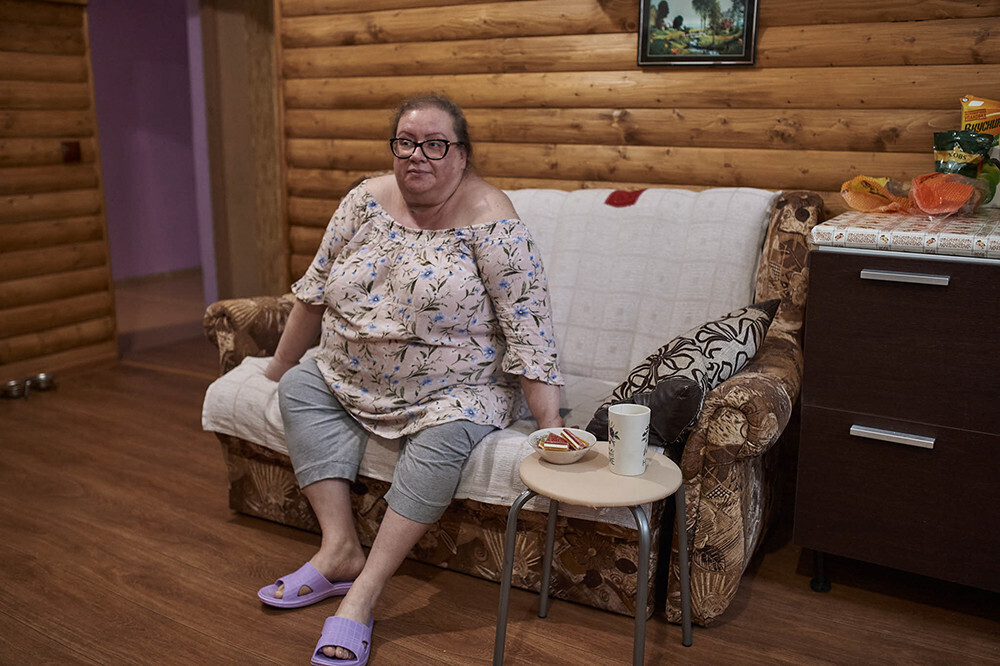
Besides the kitchen, the centre has three rooms, a future conference room, Anna’s office with a sofa and nineties-style “golden” wallpaper, a shower and a toilet. Lena shares a room with Katya, a newcomer: two bunk beds, two armchairs, a coffee table, a wardrobe and a sideboard. Agniya occupies a separate room as Anna’s assistant and the centre’s first settler.
Lena fusses in the kitchen and prepares her signature salad: boiled potatoes, homemade pickled pepper mushrooms, onion and sunflower oil. She cooks potatoes using the “Tourist,” a portable gas cooker: due to heel-dragging with the owner of the first floor, there is no gas and no cold water, one has to cool the hot water. The donations barely cover the “utility bills” — about 30,000 roubles a month.
From time to time, Lena removes her kitchen knives from the table into a drawer — according to Anna Kargapoltseva, she finds it difficult to leave them in plain sight. Another habit that girls find difficult to break is not getting up when someone enters the room.
There is little remembrance of the past at the centre; they prefer to talk about the future. The colony psychologist said that Lena had “criminal tendencies.” But Lena recalls her seven years in the colony without anger. After her release, like the other girls, she habitually tried to work late into the night and without days off — in the colony, they overfulfilled their plans in order to earn the minimum wage. But Anna Kargapoltseva has made it a rule at the centre to be home by 7 pm and no work on weekends, just rest and household chores.
“Men are convinced that a good marriage or relatives will help them avoid relapse,” says Kargapoltseva. “ Women believe that a job will do the trick. If relapse does occur, guys say “family life didn’t work out,” and girls say “work sucked me in.”
Anna is called Anna Vadimovna: many people want to get into her centre, there are more than ten people on the waiting list for February, and the girls in dire need are being released, and places are reserved for them. But you can’t put everyone in: the standard of living space is four square metres per person, so the hardest cases are chosen when the released one has nowhere else to go.
There is no place for our girls in mixed social adaptation centres or support centres for families in difficulty: either they will not be contacted because of stigma, or they will be discriminated against on the basis of their gender. They cannot go to the homeless centres , homeless people are even more vulnerable, and besides, the vast majority of people in night shelters are men. But they are not criminals.
The criminals always say, “It’s not my fault.” And ours [girls] always say, “I’m to blame.” But that doesn’t mean she’s going to grab a knife and kill men every chance she gets.
When I come to the women’s colony, everyone there says: “I killed a person, I killed a person.” But the fact that they have been beaten or threatened with rape before, they don’t even remember; it just fades into the background. I also noticed that if the killer is a man, forensic investigations go on for months to see if he is a murderer by nature or if it was an accident. And women don’t seem to be tested for spontaneity. I am sure that if one were to pull up the sentences of those years, most of them could be reviewed or overturned today. But since this is how things are working so far, we are cushioning the situation”.
The prison is crying
In 2018, while still in the colony, Lena found out that her son was living in Spain: an adoptive mother wrote on his behalf. Lena doesn’t know how she managed to track her down, but apparently, through some online service (she knew Lena’s last name). The whole squad roared. In the letter from Spain, they asked about Lena’s health. One of the staff members helped her to send her answer by email. A second letter arrived: the son remembers Lena without anger or resentment. But he does not speak Russian.
“I don’t know Spanish yet,” says Lena. ” I need to learn how to use a smartphone so I can use the translator”.
Lena also recently found out that her daughter from her first marriage also has a son, now eight years old. So far she had no luck in getting in touch with her daughter, but Lena is not giving up hope.
She also found out about her second husband’s children: the youngest boy, the one her father sent to an orphanage, has grown up and has enrolled in a cadet school. The older in and out of prison.
Lena herself has been working as a cleaner in a shopping centre since the new year. Here are no orders at the sewing factory yet. She cleans two floors. I got a job on my own through an advertisement in the newspaper. It takes an hour and a half to get to work: you have to go to the other end of Perm. But Lena says she doesn’t notice the road: “headphones in your ears and go ahead.”

The Different series is a project by Glasnaya and Novaya Gazeta about people who do not meet the standards of today’s Russian society, which leads to them becoming invisible to the majority. In Russia, it is customary not to notice, to ignore “others”, those who are different—and ignorance becomes the breeding ground for xenophobia and discrimination.
Those who are different are often afraid to put themselves out there. But there are more and more people who have already overcome their fears. Those are women and men breaking stereotypes and the framework of patriarchy.
The material is published jointly with Novaya Gazeta.

